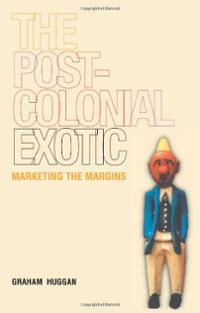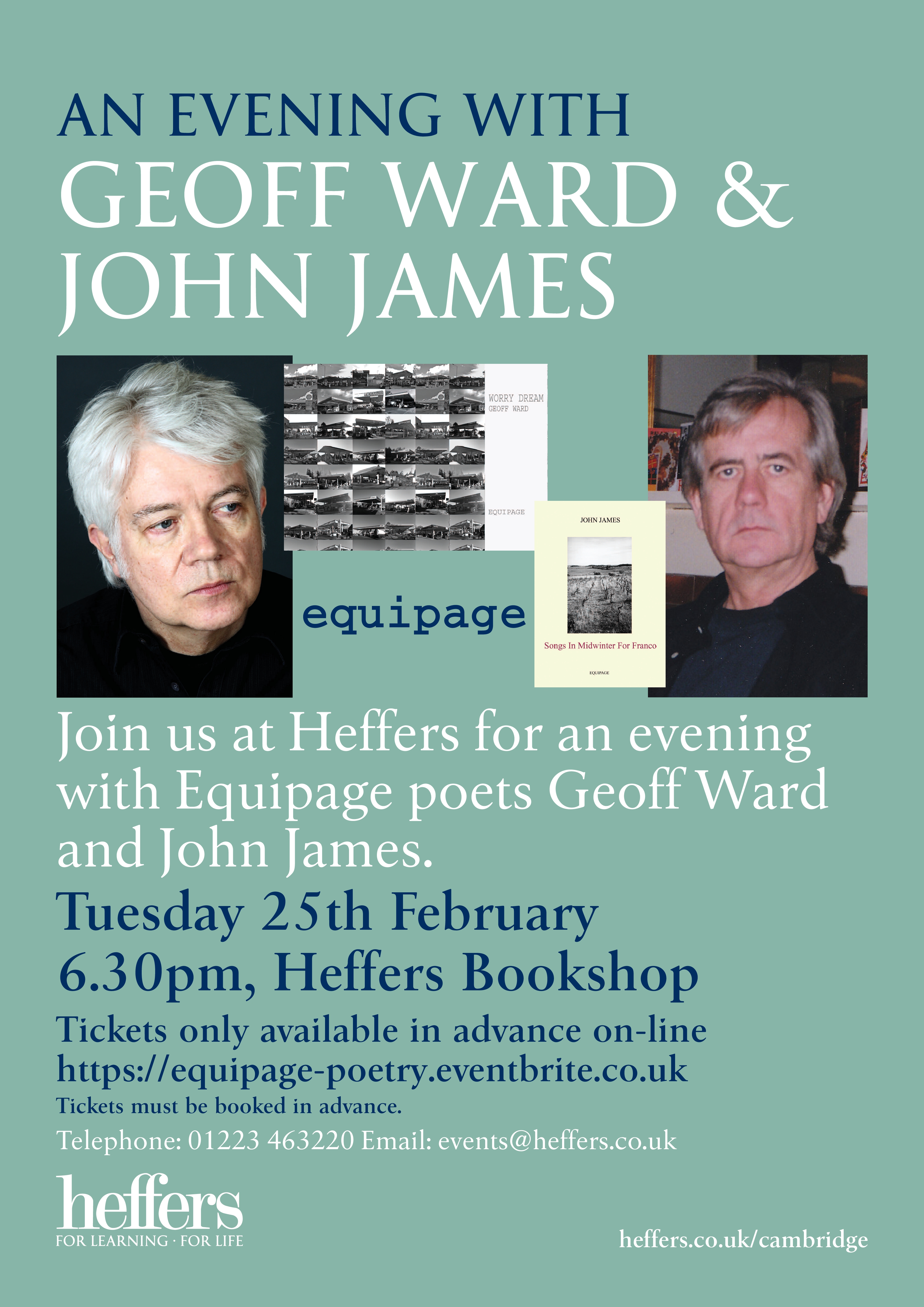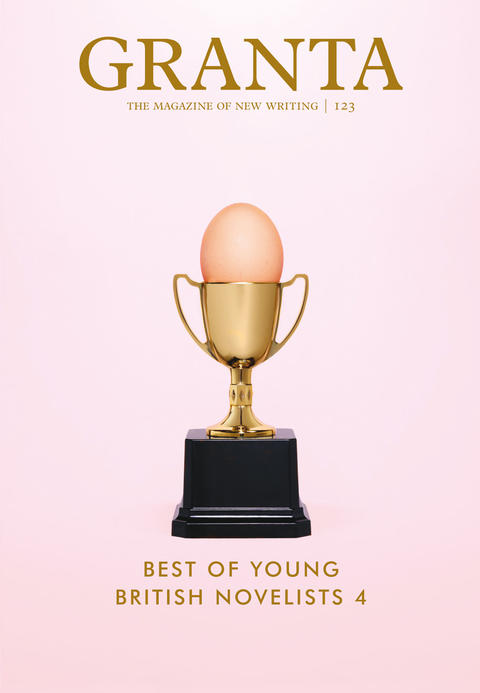Vidyan Ravinthiran, Keasbey Research Fellow at Selwyn College, will read from his first collection, Grun-tu-molani (Bloodaxe, 2014). Wine will be served. Date: Friday 25th April Time: 6pm Venue: Master’s Lodgings, Selwyn College RSVP: if you would like to reserve a place, please email vr244@cam.ac.uk. Vidyan’s poems have been anthologised several times, published as a pamphlet and have appeared in a range of magazines which include The Times Literary Supplement, PN Review and Poetry Review. ‘Gripping is not a word you usually associate with poetry, but Vidyan Ravinthiran’s poems are precisely that, and they seldom let go. They are full of surprising turns (and turns of phrase), and their humour can make you squirm, as humour should… A ferocious intelligence is at work in these poems, whose stylish armoured exterior reflects sometimes a literary scholar and sometimes a displaced person; sometimes contemporary Britain and sometimes ancient Sri Lanka’ – Arvind Krishna Mehrotra.
Category: Home (Page 3 of 3)
Still /movin/g – Launch and Reading*
Tuesday 8th April 2014
7.00 pm, Judith E Wilson Drama Studio, Faculty of English, University of
Cambridge.
All welcome – free entry
Veer Books will launch the new book by* Marc Atkins* and *Rod Mengham*,
with readings by both**Marc and Rod.
<http://www.bbk.ac.uk/cprc/publications/Veer_Publications/Veer058>
/*STILL Moving*/
<http://www.bbk.ac.uk/cprc/publications/Veer_Publications/Veer058>
Veer Publication 058 [ISBN: 978-1-907088-64-3]
‘For Rod Mengham and Marc Atkins, cracking mirrors and counter-mirrors
are not only a frontier between two worlds, they represent a systematic
quest for desire, a haunted visual trope leaping towards an elsewhere as
threatening as it is seducing, setting out to explore “the rear view of
historical convergence”, carefully recording instances in which the
conjunctions, collisions and chiaroscuro of memory and fantasy take us
beyond the scope of the thinkable and the imaginable.’ (Michel Delville)
Design by Vaughan Oliver and Marc Atkins.
A4 landscape size. 80 pages. Colour and B&W. March 2014.
Marc Atkins is an English artist, photographer, filmmaker and writer.
Marc has lived and worked for many years in London, but has also spend
extended periods of time in Rome, Detroit, New York, Warsaw and Paris.
Previous publications include /The Prism Walls/ (Contraband), /Logic of
the Stairwell/(Shearsman), /The Teratologists/ (panoptika),
/Thirteen/ (Do-Not Press), /Warszawa/ [texts by T. Pióro & A. Sosnowski]
(Wig-press), /Faces of Mathematics/(panoptika), and /Liquid City/ [text
by Iain Sinclair] (Reaktion). Atkins has presented his work and ideas on
the image at venues such as the Royal Academy, Royal College of Art, UEL
School of Architecture, Instytut Mikołowski, Poland, The Photographers
Gallery, and the University of Liège.
Rod Mengham is Reader in Modern English Literature at Cambridge
University and Curator of Works of Art at Jesus College, Cambridge. He
has published monographs and edited collections of essays on nineteenth
and twentieth century fiction, violence and avant-garde art, the 1940s,
contemporary poetry; anthologies /Altered State: the New Polish
Poetry/ [ed. Mengham, Pioro, Szymor] (2003), /Vanishing Points: New
Modernist Poems/ [ed. Kinsella, Mengham](2005); poetry, including
/Unsung: New and Selected Poems/, (2001), /Diving Tower/ (2006),
/Parleys and Skirmishes/ (2007), /Bell Book/ (2012) and /The
Understory/ (2014). He has also curated numerous exhibitions, most
recently ‘Sculpture in the Close 2013’ [Miroslaw Balka, Theaster Gates,
Harland Miller, Damian Ortega, Doris Salcedo].
ROBIN ROBERTSON
Weds 12th March, 6.15
Trinity Old Combination Room
Robin Robertson’s work has been described as pitching ‘the power and
wonder of nature against the frailty and failure of the human’.
Although human presence is frequently surreal and dislocated, it remains
at the heart of his work. Robertson is a poet who finds song in silence,
hope in a retreat into the ‘homelessness’ of the wild, all in a
meticulously exact language, described as “simultaneously spare and
ample”.
He is the first poet to have won all three categories in the Forward
Prize: Best First Collection for his 1997 debut A Painted Field, Best
Collection for Swithering in 2006, and Best Single Poem for ‘At Roane
Head’ from 2010’s The Wrecking Light. His most recent collection is Hill
of Doors, described by The Guardian as ‘a collection of flinty beauty’.
He lives in London and is fiction and poetry editor for Jonathan Cape.
We are excited to announce that Trinity Literary Society will be hosting two poetry readings this term by Michael Longley and Don Paterson (5th March) and Robin Robertson (12th March), both at 6.15 in the OCR. MICHAEL LONGLEY and DON PATERSON, Weds 5th March, 6.15 Trinity OCR Described by Seamus Heaney as "a keeper of the artistic estate, a custodian of griefs and wonders", Michael Longley's work has handled subjects as diverse as Homeric literature, the landscape of Carrigskeewaun, jazz and the politics of Northern Ireland over a span of nearly fifty years. Praised for his formal power, and 'meticulous, unpretentious technique', his most recent collection, A Hundred Doors, won the Poetry Now Award in September 2012, and has been described as displaying 'proof in the continuity of poetic language with the world'. His other collections include The Echo Gate (1979), Gorse Fires (1991) which won the Whitbread Poetry Prize, and The Weather in Japan (2000), awarded both the T.S. Eliot Prize and the Hawthornden Prize. He received the Queen's Gold Medal for Poetry in 2001 and was made a CBE in the 2010 Birthday Honours. Named one of the Poetry Society's 'New Generation Poets' in 1994, Don Paterson's work has been praised for combining "postmodern playfulness with a sense of yearning for the transcendental". Paterson has said he finds truth not in beauty but in style, and his writing - from the towns and empty football pitches of his early work to the more inward-facing elegies of recent collections - mixes the colloquial with the erudite to create a sharp and distinctive voice. Since his 1993 Forward Prize-winning debut Nil Nil, he has published several collections including God's Gift to Women (1997), which won the T. S. Eliot Prize and the Geoffrey Faber Memorial Prize, and his Landing Light (2003), which won both the T.S. Eliot Prize and the Whitbread Poetry Award. He was made OBE in 2008 and was awarded the Queen's Gold Medal for Poetry in 2010. He currently teaches at the school of English at the University of St Andrews and is poetry editor for Picador. --- ROBIN ROBERTSON, Weds 12th March, 6.15, Trinity Old Combination Room Robin Robertson's work has been described as pitching 'the power and wonder of nature against the frailty and failure of the human'. Although human presence is frequently surreal and dislocated, it remains at the heart of his work. Robertson is a poet who finds song in silence, hope in a retreat into the 'homelessness' of the wild, all in a meticulously exact language, described as "simultaneously spare and ample". He is the first poet to have won all three categories in the Forward Prize: Best First Collection for his 1997 debut A Painted Field, Best Collection for Swithering in 2006, and Best Single Poem for 'At Roane Head' from 2010's The Wrecking Light. His most recent collection is Hill of Doors, described by the Guardian as 'a collection of flinty beauty'. He lives in London and is fiction and poetry editor for Jonathan Cape.
PARNELL LECTURE Tuesday 25th February 5.15 p.m. Cripps Theatre, Cripps Court, Magdalene College CLAIR WILLS ‘Late Style Irish Style: Contemporary Irish Poetry and the Problem of Belatedness’. Clair Wills is Professor of Irish Literature at Queen Mary University of London and this year's Parnell Fellow, Magdalene College. Recent publications include Dublin 1916: The Siege of the GPO (2009) and That Neutral Island: A History of Ireland during the Second World War (2007). Cripps Court is on the left fifty yards or so up Chesterton Lane/Chesterton Road from the traffic lights at the foot of Castle Hill.
Granta has selected the next decade’s British novelists under-40 to watch.
Some are expected; some might not be.
Have a look here:
Naomi Alderman
Tahmima Anam
Ned Beauman
Jenni Fagan
Adam Foulds
Xiaolu Guo
Sarah Hall
Steven Hall
Joanna Kavenna
Benjamin Markovits
Nadifa Mohamed
Helen Oyeyemi
Ross Raisin
Sunjeev Sahota
Taiye Selasi
Kamila Shamsie
Zadie Smith
David Szalay
Adam Thirlwell
Evie Wyld
…see more here . . . .http://www.granta.com/Archive/123
– and here too . . . http://www.bbc.co.uk/programmes/b01s0f63
‘[P]ostcolonial is a word on everyone’s lips, even if no one seems to know what it means’
– Graham Huggan (The Postcolonial Exotic, p. 1)
 I put forward Huggan’s introduction to the Postcolonial Exotic with the most abjectly selfish intentions. The Contemporaries research group is, at its heart, an eclectic collection of readers who all work on a body of authors creating literature in the same time period but who are all up to fairly different things. I wondered how the group would respond to the opening of a work that caused a fairly wide ripple in the pool of postcolonial studies but seems not to have touched any other sub-disciplines; how we would go about discussing a text whose ideas have spectacularly wide-reading implications but which positions itself, immediately, as only about this hard to define thing dubbed the ‘postcolonial’.
I put forward Huggan’s introduction to the Postcolonial Exotic with the most abjectly selfish intentions. The Contemporaries research group is, at its heart, an eclectic collection of readers who all work on a body of authors creating literature in the same time period but who are all up to fairly different things. I wondered how the group would respond to the opening of a work that caused a fairly wide ripple in the pool of postcolonial studies but seems not to have touched any other sub-disciplines; how we would go about discussing a text whose ideas have spectacularly wide-reading implications but which positions itself, immediately, as only about this hard to define thing dubbed the ‘postcolonial’.
Huggan’s book is, in the main, about the commodification of cultural difference. It argues that postcolonial authors, broadly those who write about or on behalf of the developing world, exist in an international literary market whose mainstream readers use their texts like tourists use foreign spaces: in search of the exotic. For Huggan,
‘the exotic is not, as is often supposed, an inherent quality to be found ‘in’ certain people, distinctive objects, or specific places; exoticism describes, rather, a particular mode of aesthetic perception – one which renders people, objects and places strange even as it domesticates them . . . Exoticism, in this context, might be described as a kind of semiotic circuit that oscillates between the opposite poles of strangeness and familiarity’ (p. 13).
Thus postcolonial writers are exoticised – made different and marketed for their difference in a way that acts to subordinate and control their products and the people and places they represent.
Our conversation, as I remember it, mainly assessed Huggan’s argument and clarified his claims. At least one participant asked why the text made such a splash – and how and why Huggan’s presentation of these contentions restricted itself to the postcolonial sphere – surely all authors’ objects are similarly ‘exoticised’? Of the things we touched upon the most productive aspect of the conversation dwelled on Huggan’s unspoken indictment of all English academics focused on the contemporary (if not ‘all’ full stop). If we follow his argument to its logical limit, in some sense all of our practice acts to domesticate the strange – our whole function is to select texts that help us to condense peoples, periods, preoccupations and affects into single sentences or bodies of works or pithy lines. We distil complex texts, in conjunction with marketers, agents and editors, into syllabus-fitting and often singular concepts. The biggest question raised, one we couldn’t quite fully cover, was: How do we not commodify?

